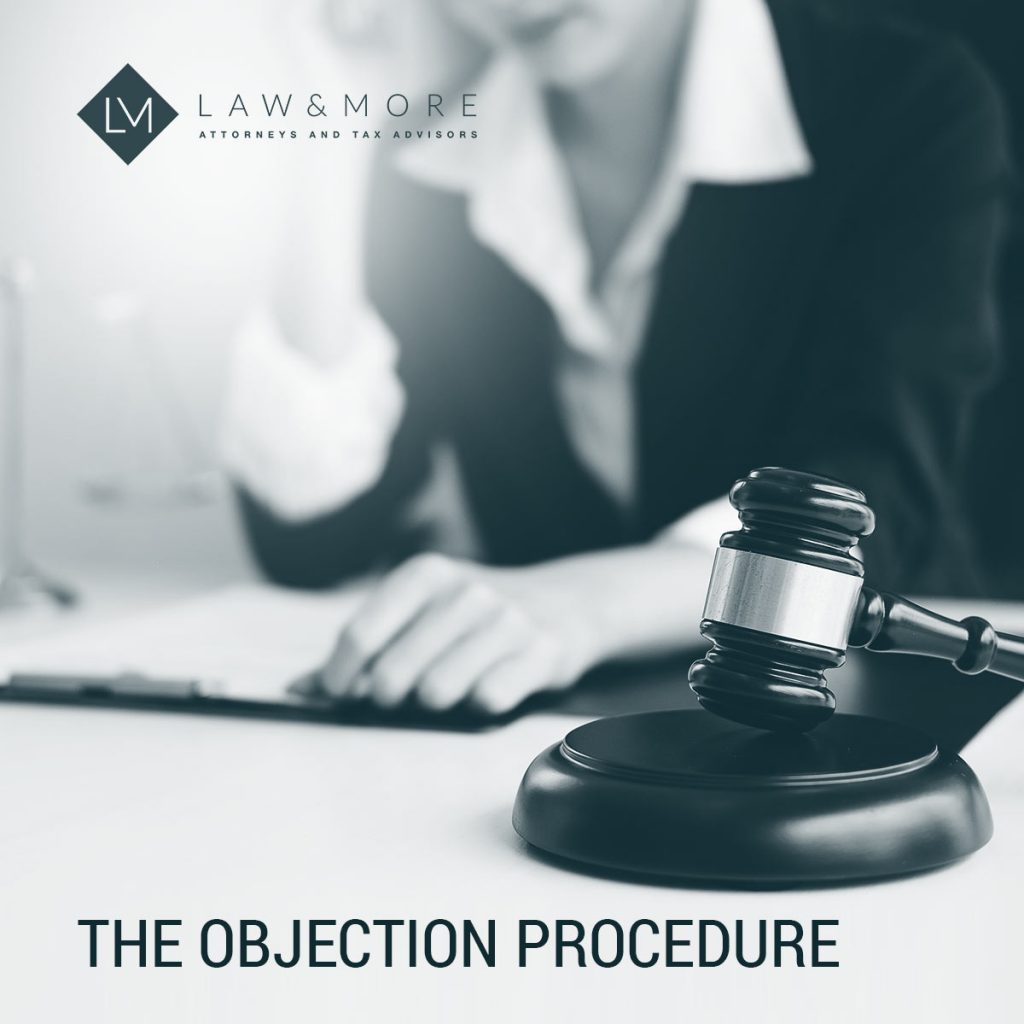Expert Help for Objection Procedure
When you are summoned, you have the opportunity to defend yourself against the claims in the summons. Being summoned means that you are officially required to appear in court. If you do not comply and do not appear in court on the date stated, the court will grant in absentia against you.
Even if you do not pay the court fee (on time), which is the contribution to the costs of justice, the judge may pronounce a judgment in absentia. The term ‘in absentia’ refers to the situation in which a court case is heard without your presence. If you are validly summoned as a defendant, but do not appear, it is most likely that the other party’s claim will be granted in default.
If you do not appear in court after you have been summoned, this does not mean that you no longer have a chance to defend yourself. There are two possibilities to still defend you against the claims of the other party:
- Purge in absentia: if you, as a defendant, do not appear in the proceedings, the court will grant you in absentia. However, there will be some time between the nonappearance and the judgment in absentia. In the meantime, you can purge in absentia. Purification of the default means that you will still appear in the proceedings or that you will still pay the court fee.
- Objection: if a judgment in absentia has been given, it is no longer possible to purify the judgment in absentia. In that case, an objection is the only way to defend you against the claims of the other party in the judgment.

How do you set up an objection?
Objection is set by having a resistance summons served. This reopens the proceedings. This summons must contain the defences against the claim. In the objection summons you, as the defendant, therefore argue why you believe that the court has wrongly granted the claim of the plaintiff. The objection summons must meet a number of legal requirements. These include the same requirements as a regular summons. It is therefore wise to approach an attorney at Law & More to draw up an objection summons.
Within what time limit should you lodge an objection?
The period for issuing a writ of objection is four weeks. For defendants living abroad, the time limit for lodging an objection is eight weeks. The period of four, or eight, weeks can start at three moments:
- The period can start after the bailiff has handed the judgment in default to the defendant;
- The period may start if you, as a defendant, perform an act which results in you being familiar with the judgment or the service thereof. In practice, this is also referred to as an act of familiarity;
- The period can also start on the day of enforcement of the decision.
There is no order of precedence between these different time limits. Consideration is given to the period that starts first.
What are the consequences of an objection?
If you start an objection, the case will be reopened, as it were, and you will still be able to put forward your defences. The objection is lodged with the same court that issued the judgment. Under the law, the objection suspends enforcement of the judgment in absentia, unless the judgment has been declared provisionally enforceable. Most default judgments are declared provisionally enforceable by the court. This means that the judgment can be enforced even if an objection is lodged. Therefore, the judgment will not be suspended if the court has declared it provisionally enforceable. The plaintiff can then enforce the judgment directly.
If you do not lodge an objection within the set period, the judgment in default will become res judicata. This means that no other legal remedy will then be available to you and that the default judgment will become final and irrevocable. In that case, you are therefore bound by the judgment. That is why it is very important to lodge an objection in time.
Can you also object in an application procedure?
In the foregoing, the objection in a summons procedure has been dealt with. An application procedure differs from a summons procedure. Instead of addressing the opposing party, an application is addressed to the court. The judge then sends copies to any interested parties and gives them the opportunity to react to the application. Contrary to the summons procedure, an application procedure is not granted in absentia if you do not appear.
This means that the objection procedure is not available for you. It is true that the law does not stipulate that in an application procedure the court will grant the request unless the request appears to be unlawful or unfounded, but in practice this often happens. That’s why it’s important to lodge a remedy if you disagree with the decision of the court. In application proceedings, only the remedy of appeal and subsequently cassation is available.
Have you been sentenced in absentia? And do you want to clear your sentence in absentia or object by means of an opposition summons? Or do you want to lodge an appeal or a cassation appeal in an application procedure? The lawyers at Law & More are ready to assist you in legal proceedings and are pleased to think along with you.
